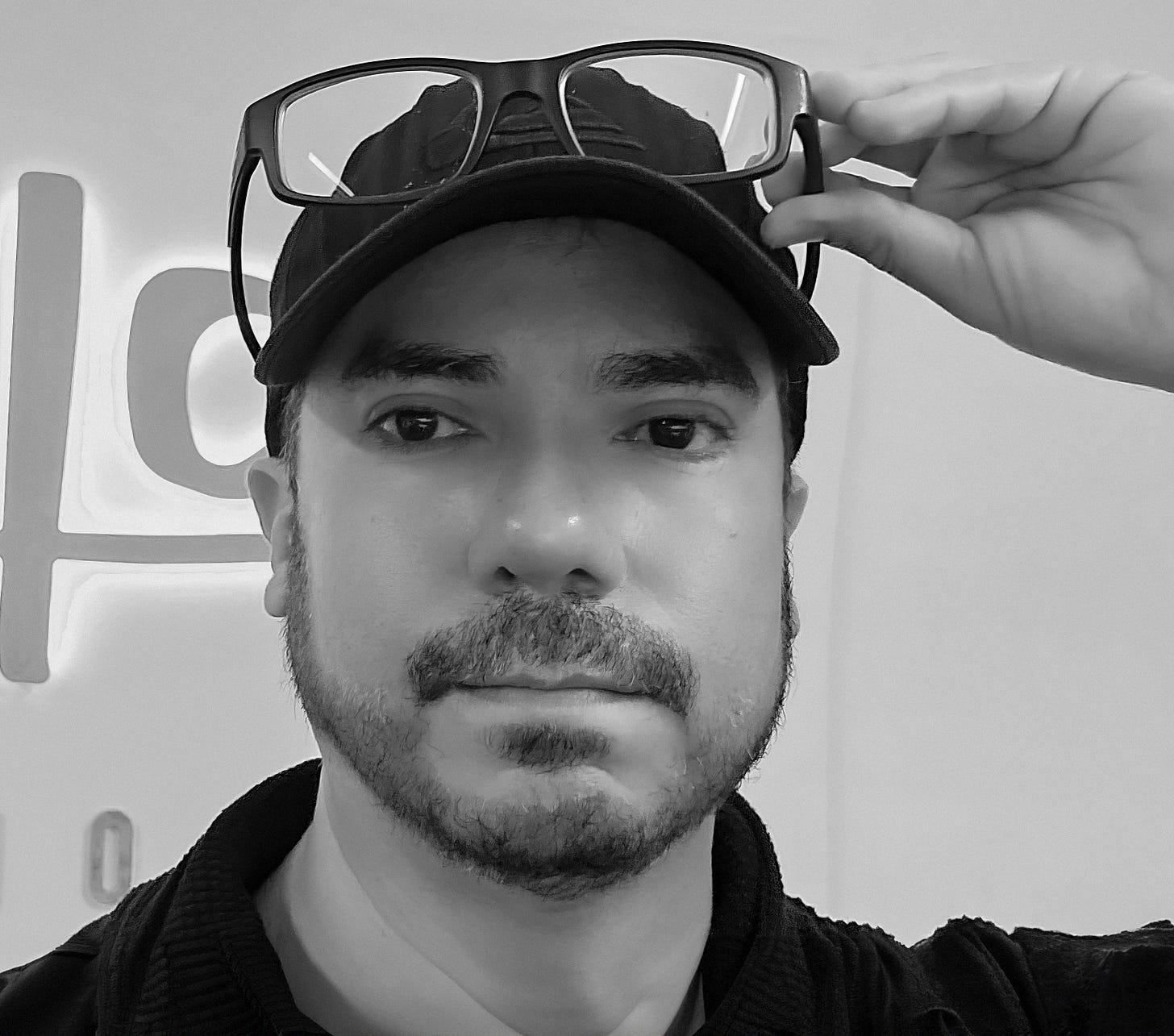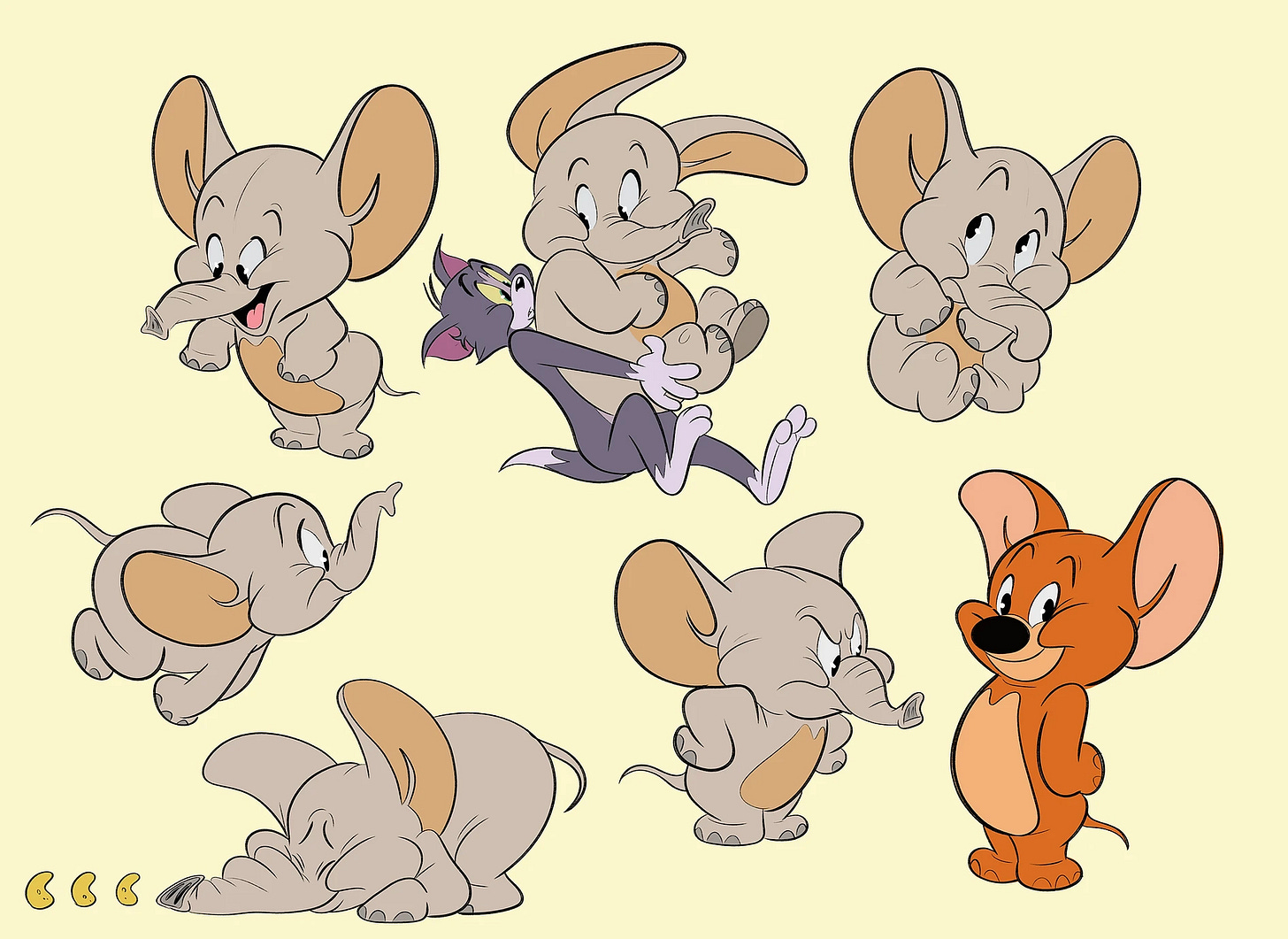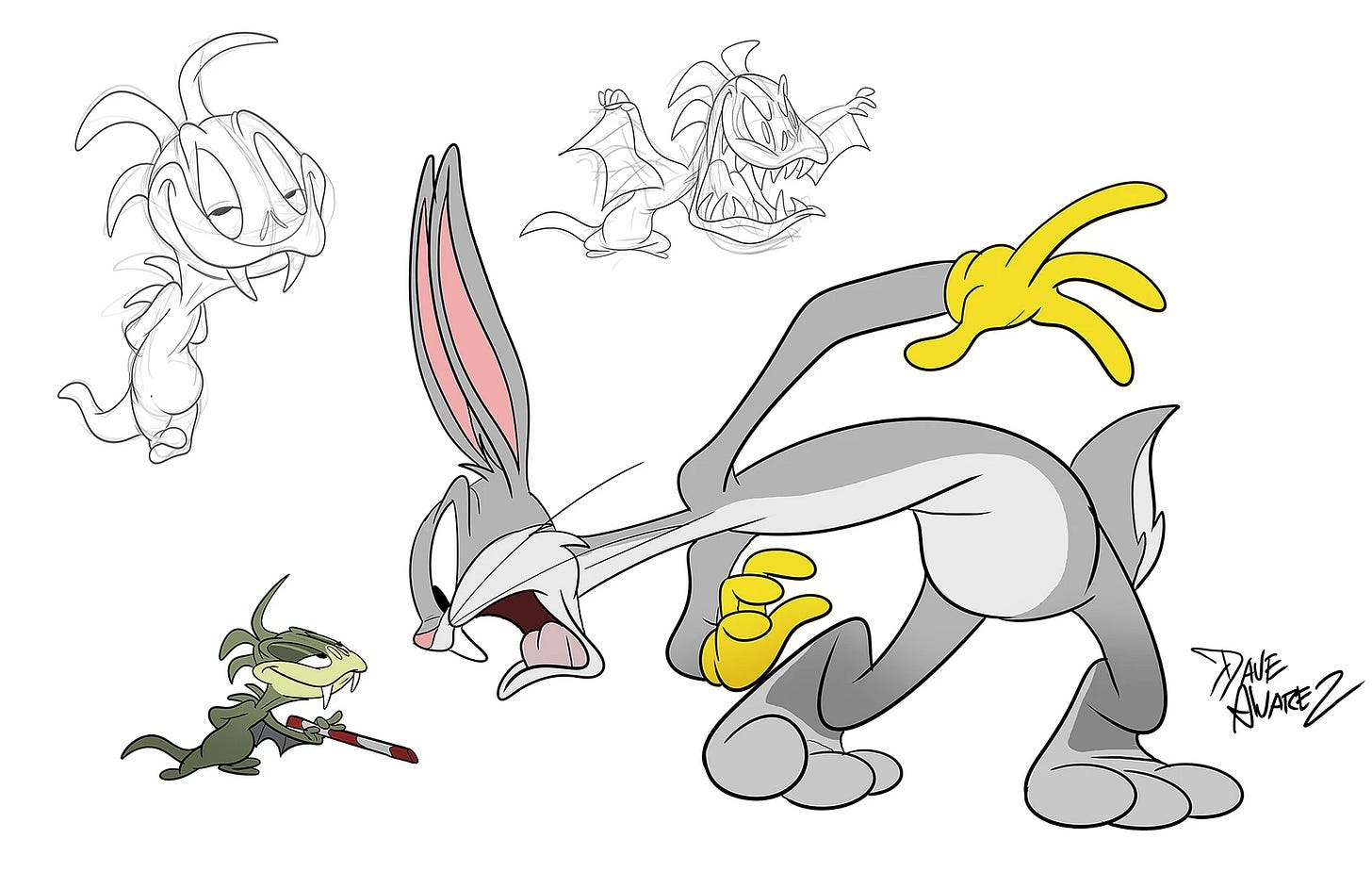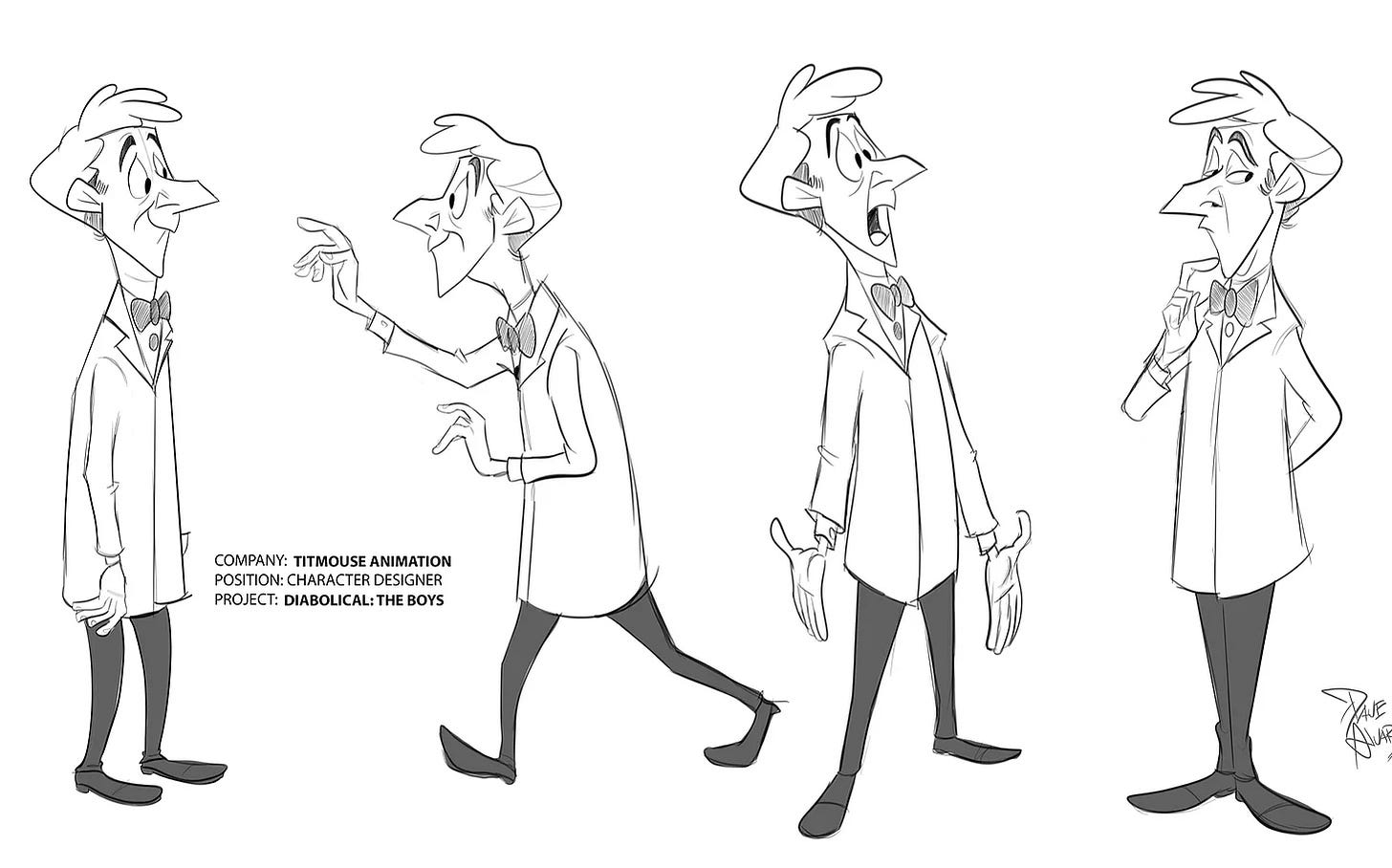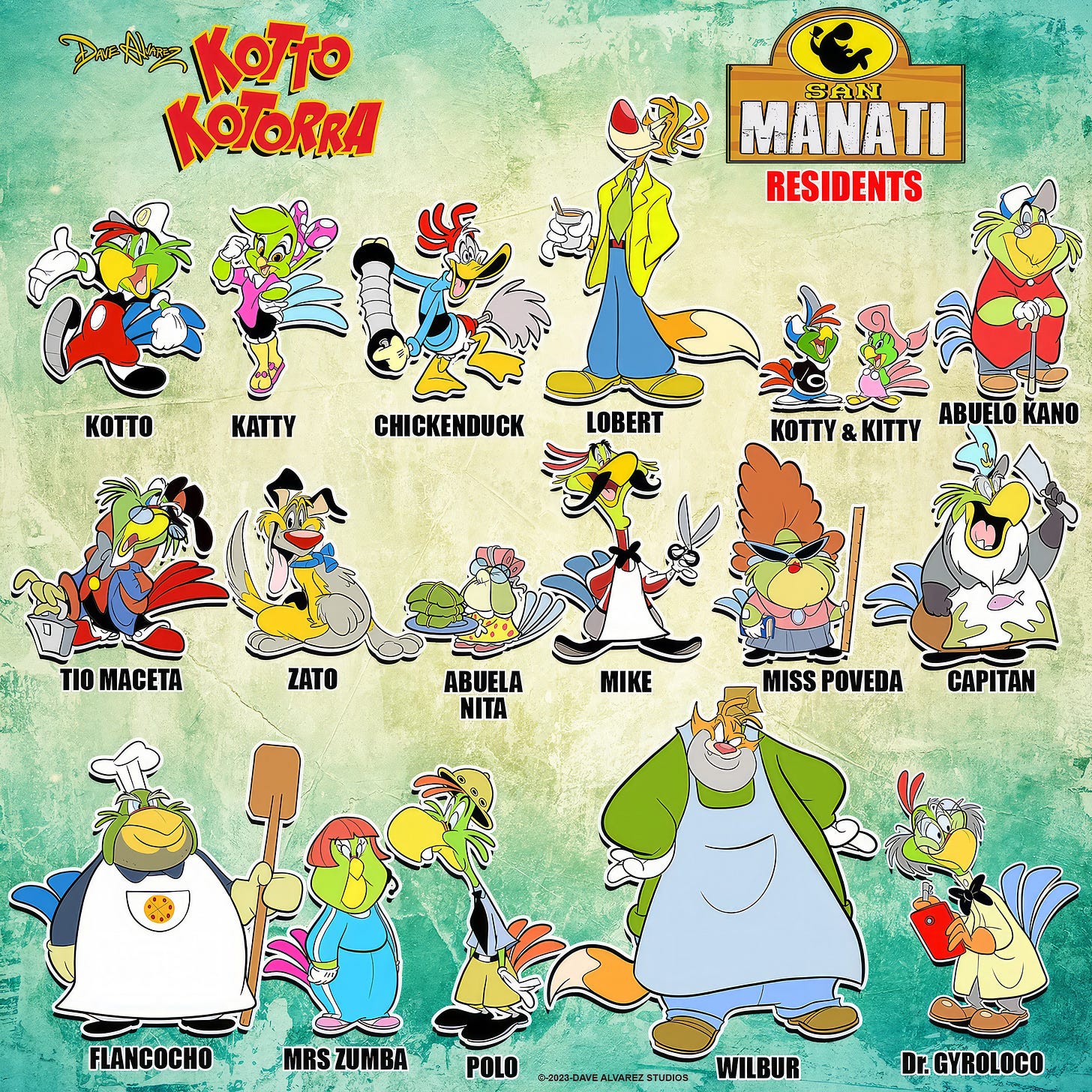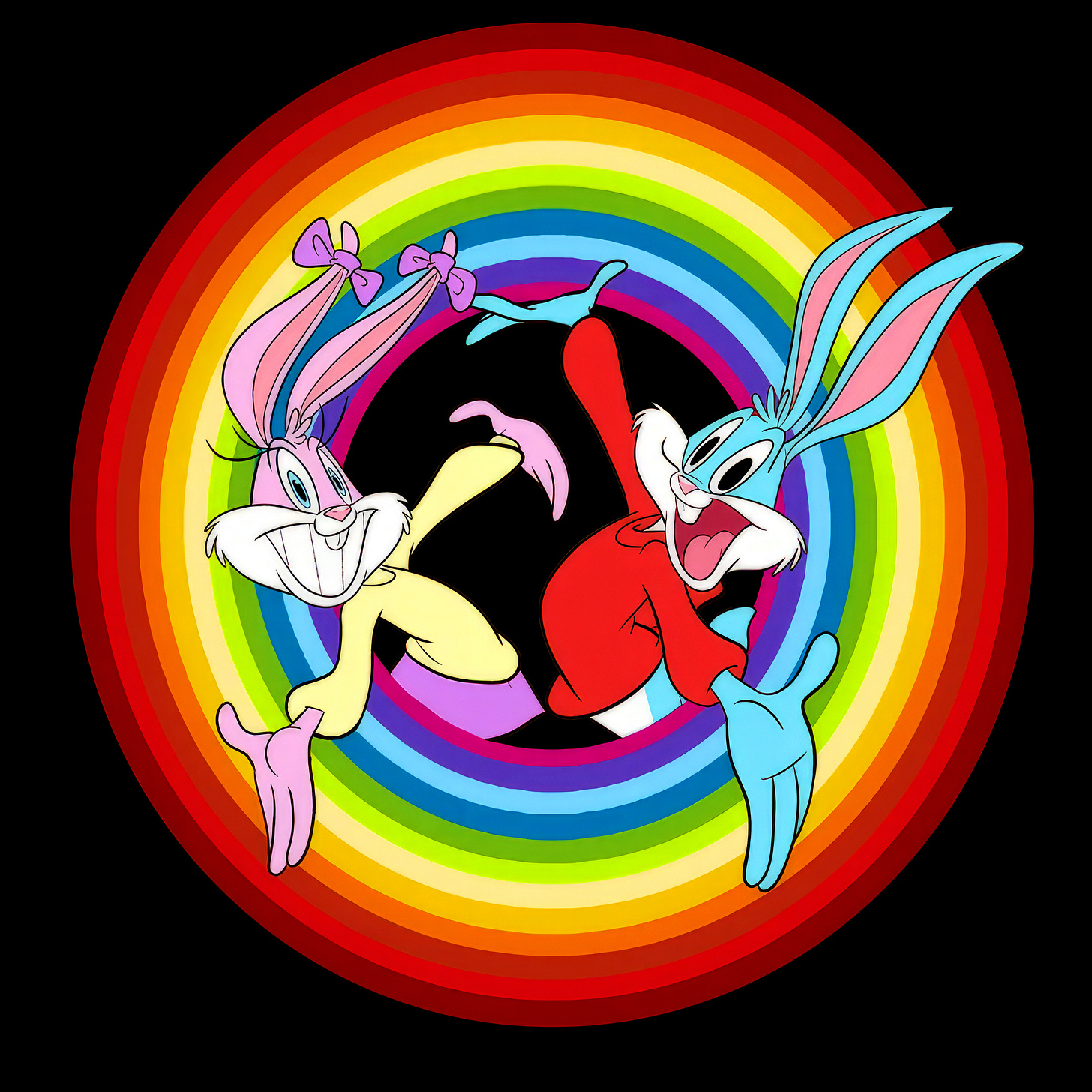Long Story Short ★ DAVE ALVAREZ
Perseverance of Culture and Career put this Character Artist on the Road to Success
Character Design is a highly sought-after career that only a handful of people can really make a name for themselves in. Artist DAVE ALVAREZ is someone who popped up onto our radar with his posts on LinkedIn. Working with familiar characters there was something special about his snappy work that reminded me of when Ralph Bakshi had reinvigorated Mighty Mouse in the mid-80s. With a voice all his own, Dave sat down with us to share his story.
BTP: Tell us a little bit about yourself and why you decided to pursue your career as a creative storyteller.
ALVAREZ: I'm constantly thinking about stories and how I would like to tell them. When I was a kid, I got on the nerves of my friends because I always wanted to end our games with a substantial finale. Lol.
BTP: Since environment dictates a lot of story for characters, what type of environment did you grow up in and was it supportive of your endeavors?
ALVAREZ: I grew up in a small town called Manatí in Puerto Rico. The environment was very local, simple and cordial. That kind of environment got stuck in my mind.
BTP: Who was your first advocate or earliest mentor that helped in your pursuits?
ALVAREZ: The first person who called me into making storyboards was Scott Jerralds. He asked if I could storyboard a Krypto the Superdog episode, so that was my first chance.
He taught me some basics that served me as a foundation for my future career.
BTP: How about before that? Were there any relatives, friends, teachers, or mentors who pushed you into a life of art? How did you know that art and storytelling would be your focus?
ALVAREZ: There were two pivotal people who pushed my creativity. Vicente Aviles a local cartoonist whose comic strip el Profe became one of my favorites. It turned out that we lived in the same town, and I didn't know that! He taught me what bristol paper and india inks were.
And there was Professor Rafael La Luz, he was my Graphic Arts teacher at the vocational school. With him I learned all the techniques that led me into creating comics and books.
BTP: When you originally set out to study and learn, when did your learning take place and what resources did you have available to you?
ALVAREZ: I didn't had that much resources because my family wasn't financially able.
I did study television and arts in the University of Puerto Rico which helped me a lot.
BTP: Sometimes our struggles define our character as well and make us stronger for our journey. Can you describe the journey of your education, and what it was like coming to the United States to start your career? How did you land your first job in the creative arts?
ALVAREZ: I didn't have that many options since Animation wasn't taught in colleges at all. So, I had to settle for Television and Cinema, which became very useful since I learned about camera angles, storytelling, and storyboarding.
I didn't go to the United States until very late in life. I met my first professional contacts through my first job opportunity which was illustrating the Looney Tunes comics. Some of my editors became writers or directors in television.
I learned that animation is a very small community that commutes from one studio to the other.
BTP: When compared to your early work experience do you feel like you were well-educated to step into a role or was there a larger divide between school and actual pipeline production?
ALVAREZ: No. I wasn't ready.
The opportunity showed up and I jumped right into it.
I learned the hard way. Animation wasn't taught anywhere in my country so I had to learn on the road as jobs came up. I had different mentors like Tony Craig, Bob Camp, Mike Milo and many others.
BTP: Still, that’s an amazing role call of mentors! Wow. How did you go about contacting them or showing them your work? That can be a big hurdle for someone to overcome.
ALVAREZ: I began to attend comic conventions and started to meet many people from the industry. San Diego Comic Con, C2E2 and New York Comic Con became the place to go to meet professional people.
BTP: What do you feel was missing in your education vs. the reality of the job? How would you fix this?
ALVAREZ: Universities never prepare you for the actual real world.
They prepare you to work for somebody or some company, but not to be prepared as an individual. Students need to know how to survive or even create their own studio.
BTP: You make a really good point. Oftentimes instructors are only academia and not working in the real world. It creates a disconnect from the current reality. How much of your career as been FREELANCE vs. STUDIO work? Which do you prefer and why?
ALVAREZ: Both are fine with me, but of course, studio work is always good although I've done more freelancing than the latter.
BTP: As creatives we tend to have personal goals or aspirations for ourselves. What are yours and what does achieving that look like in the next 5 to 10 years?
ALVAREZ: I have a lot of stories to tell. Characters that I want the world to meet.
I would love to have the opportunity of leaving a legacy.
BTP: I ask a lot people about legacy. That’s been something I’ve been thinking about. Have you started on your journey to create these characters and worlds? What would be the best way for you to get that work out there?
ALVAREZ: I've created a lot of characters. Kotto Kotorra, Yenny, Changuy, Vejigantes and many others. Each one of them represents a little bit of me. I always hope that they stay with the people.
I've tried every media available in order for people to know them. Lol.
BTP: What are your biggest fears in your career currently and what are you doing to keep those in check?
ALVAREZ: I always try to stay up to date with technology, needs, designs and brands.
Sticking with something that worked 20 years ago, but doesn't work today, is the recipe for failure.
BTP: This is very true when tools and “looks” are technology dependent. But a lot of your natural skill goes beyond technology. How do you stay sharp with the fundamentals of your art? How do keep doing such amazing character work?
ALVAREZ: Thanks for that. I try. Well, I don't fall in love with the latest in technology. I fall in love with the technology that allows me to express myself. I find myself using unorthodox programs like Sketchbook Pro for example instead of Photoshop.
BTP: Describe the perfect day for yourself. Comparatively, what would be the perfect workday?
ALVAREZ: Aaah...if only. Lol!
A perfect day would be to wake up to finally being able to work in a personal creation and being able to live from it. But, in the meantime a perfect workday starts with a good workout, a nice breakfast with tall coffee included, good music, and no interruptions.
BTP: This checks all the boxes for me, too! I don’t think I could improve on this answer.
BTP: What advice would you give to your younger self regarding your life’s path thus far?
ALVAREZ: Don't be naive. Not everyone is there to help you. Learn to survive.
BTP: Sounds like there’s a story there. Is there a specific incident you can share that had an outcome that you would have preferred turn out differently? (It might help other people in a similar situation)
ALVAREZ: There have been a few, but I don't like revisiting negative moments. I prefer to learn from them.
BTP: What is the most difficult thing you’ve had to do in your career and how did you make it through?
ALVAREZ: To overcome racism, envy and frustration. Learning to fly above all that and continue moving forward is the most difficult thing that I've ever had to deal with.
BTP: I honestly can’t imagine how hard that must have been. I’m glad you found a path forward and wish you the best on your career path.
ALVAREZ: Thank you. It’s something that is real and it’s still happening. Sadly.
BTP: Thanks for taking the time, Dave, hang out and chat. Where can people find more about you and your work? (post preferred links below, please)
ALVAREZ: You may find everything at:
WEBSITE: www.dascomics.com
INSTAGRAM: https://www.instagram.com/davealvarezstudios/
Thank you for inviting me.



